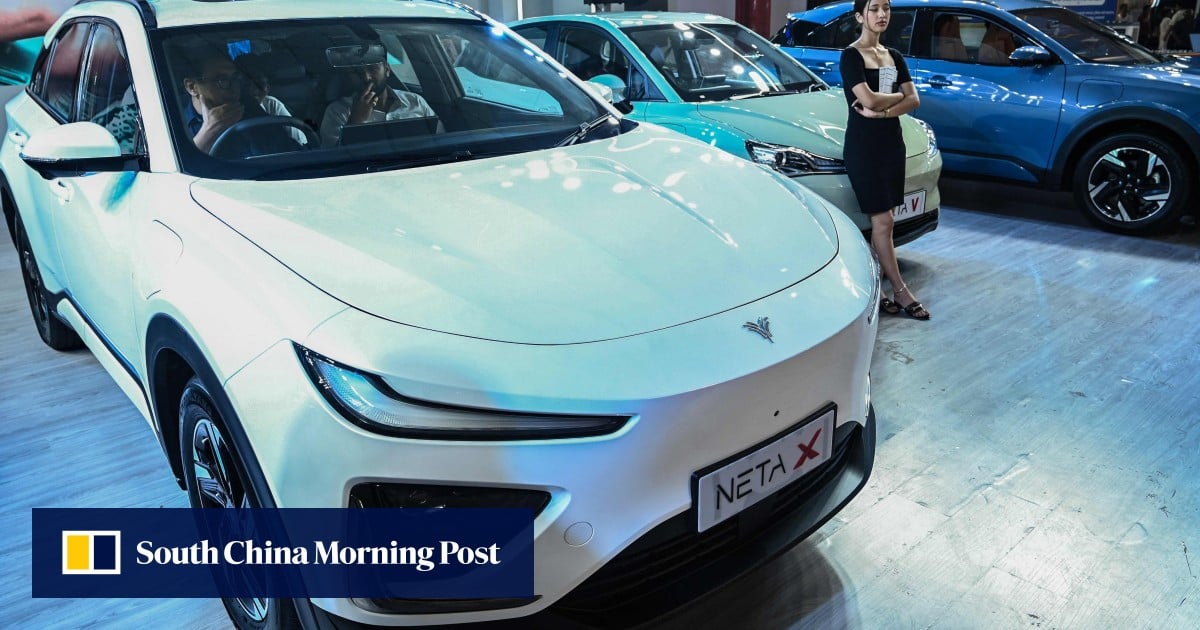Taxi driver Surendra Parajuli’s decision to buy an electric cab would have been unthinkable a decade ago, when chronic power cuts left Nepalis unable to light their homes at night.
But a dam-building spree has led to dirt-cheap energy prices in a landlocked Himalayan republic otherwise entirely dependent on fossil fuel imports, meaning the switch has put more money in his pocket.
“It has meant huge savings for me,” Parajuli, the proud new owner of a battery-powered and Chinese-made BYD Atto 3, said in the capital Kathmandu.
“It gives 300km in a single charge and costs me a tenth of what petrol does. And it’s environmentally friendly.”
Kathmandu is ground zero of an incipient transport revolution set to see the clapped out cars that clog its traffic-snarled streets make way for emissions-free alternatives.
More than 40,000 electric vehicles are on the roads around the mountainous country, according to official estimates – a small fraction of the 6.2 million motor vehicles currently in service.
But demand is insatiable: more than a quarter of those vehicles were imported in the 12 months to July, a near-threefold increase from the previous year.
Neighbouring China, now the dominant player in electric vehicles globally, is supplying nearly 70 per cent of the market.
“EVs are genuinely suitable for Nepalis,” Yajya Raj Bhatt, a prospective buyer at an electric vehicle motor show, said.
“Before, we had to rely on petrol cars, but now we can drive independently.”
More than four in five Nepalis did not have access to electricity at the turn of the century, according to the International Energy Agency.
But rapid investment in dams, which generate 99 per cent of Nepal’s baseload power, has transformed the energy grid since.
Hydropower output has increased fourfold in the past eight years, according to government figures, while 95 per cent of the population now has access to electricity.



This is the reason why most people would want to switch to EVs. The total running cost in the long run is significantly lower.